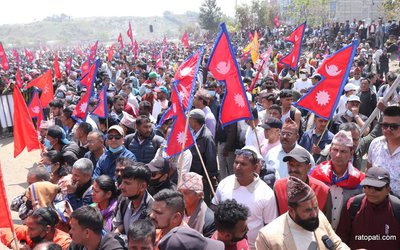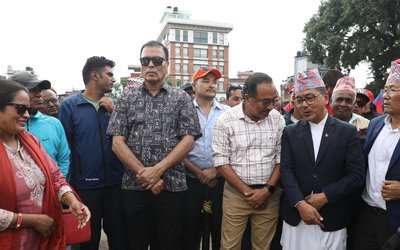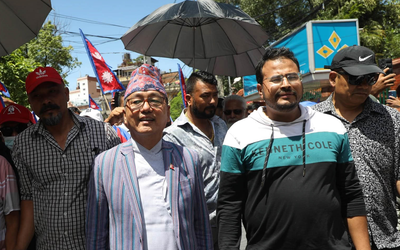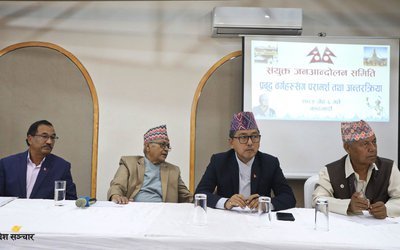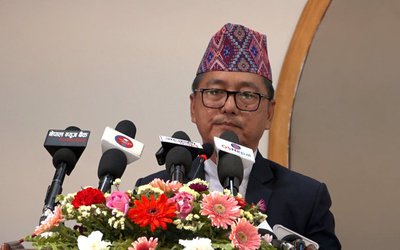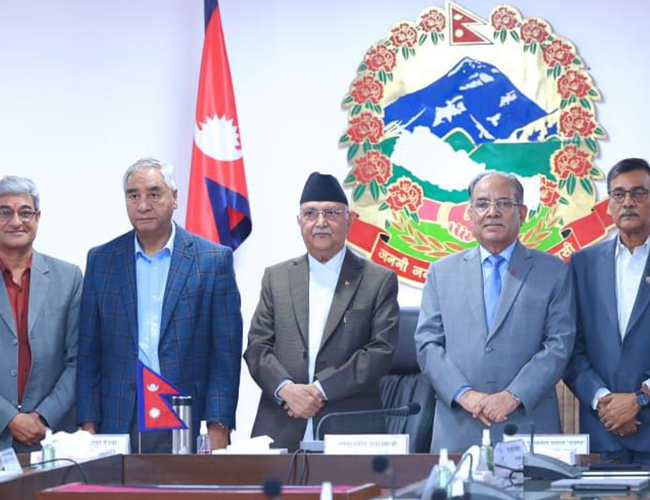
Whenever there is some political turmoil in Bangladesh, such events have a greater political impact in Nepal. After the liberation of Bangladesh in 1971, Nepal under the new King Birendra amended the constitution to prevent the entry of liberals.
Similarly, the Nepalese successfully launched an anti-panchayat moment after the fall of the military regime in Bangladesh in 1991. Nepal's multi-party constitution and monarchy fell after the rise of Hasina in Bangladesh.
Whether it is a coincidence or the impact of Bangladesh's political upheavals, the leaders of three political parties agreed to bring the Transitional Justice Act to conclude the peace process that began in 2016.
With only 26 kilometers separating them, Bangladesh is a neighboring country to Nepal, and the political changes in Bangladesh have influenced the political landscape in Nepal. The unpopularity of the current government, along with the political leaders who have been in power for the past twenty years, has created a sense of unease among them. KP Oli Sharma, who consistently prioritizes decisions that benefit his party members, has been a source of public irritation. While our main narrative focuses on monetary policy, we also explore the implications of Nepal's political turmoil.
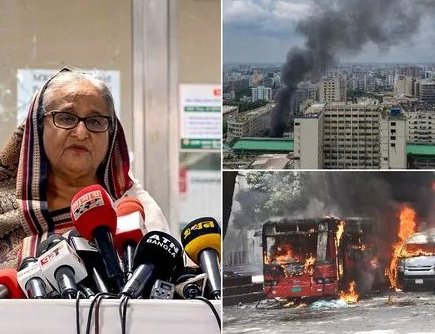
With each of the three parties pushing its own agenda, the transitional justice bill never reached the full house. However, the leaders of the three parties came closer by directing the committee to bring a new bill.
Prime Minister KP Sharma Oli has said that an agreement on the transitional justice bill is a milestone for Nepal's peace process.
Receiving a report on the political understanding reached at the level of the Task Force for the Completion of Transitional Justice in accordance with the Comprehensive Peace Agreement at the Office of the Prime Minister and Council of Ministers today, the Prime Minister said that with the availability of the document, there should be no confusion in providing a legal basis for the completion of the remaining tasks of the peace process.
He expressed his commitment that the Transitional Justice Bill will be unanimously approved by the current session of Parliament.
The Prime Minister said the agreement is based on a survivor-friendly approach if we need to amend laws to conclude the transitional justice, which remains as the final segment of the peace process.
"We have experienced a painful past. The country went through a conflict. The country suffered considerable damage. However, there have been positive changes, but again we are justified to conclude the peace process. With the inclusion of all dimensions of conflict-era violence in the peace process, there is no need to leave behind their vestiges," the Prime Minister said.
According to him, this agreement takes into account the rulings of the respected Supreme Court, international norms and values, and the survivor-sensitive approach. This is a milestone in the peace process. The bill aims to prevent the recurrence of such conflicts. Once the bill is passed by parliament, we will move forward with the formation of commissions based on mutual consultation and consensus," he added.
"Although there have been various practices in the past, there is no need for violence and lawlessness at a time when democracy has been established," PM Oli clarified.
He said the incumbent government upholds the value that democracy should be seen as a way of life, and thus he made it clear that he would work for the protection and implementation of the federal democratic republican system.
Nepali Congress (NC) President Sher Bahadur Deuba praised the task force for setting a unique example to the world that Nepalis would resolve their disputes on their own. He expressed his best wishes for the implementation of the consensus forged by the task force.
Similarly, CPN (Maoist Centre) Chairman Pushpa Kamal Dahal "Prachanda" described the Task Force report as a "good work" after the formation of the new government.
He wished that the report would be finalized through the legitimate process of the Parliament, thereby sending the message of peace, stability and development to the Nepali people.
The Political Task Force formed in connection with the Bill to amend the Commission of Inquiry on Disappeared Persons, Truth and Reconciliation Act-2071 BS, today submitted its report to the leaders of the three major political parties.
The report was submitted to Prime Minister and CPN (UML) Chairman KP Sharma Oli, NC President Sher Bahadur Deuba and CPN (Maoist Centre) Chairman Pushpa Kamal Dahal 'Prachanda' at the Prime Minister's Office and the Council of Ministers at Singha Durbar.
The task force consisted of Home Minister and NC leader Ramesh Lekhak, CPN (UML) Chief Whip Mahesh Bartaula and CPN (Maoist) Janardan Sharma. The report is the culmination of several discussions held by the Task Force on the main concerns and agendas of the Transitional Justice Bill. The bill is under consideration by the Parliamentary Committee on Law, Justice and Human Rights.
A consensus has been forged on a victim-friendly approach on the issues of reconciliation, compensation for the maimed and punishment for the perpetrator during the armed conflict, Minister Lekhak told the Rastriya Samachar Samiti.
Whether coincidental or deliberate, the agreement among the three parties that have ruled the country for the last 17 years on a contentious issue of concluding the peace process at this juncture of crisis in Bangladesh spoke volumes.
- MELAMCHI WATER SUPPLY: No Interruption During Monsoon
- Jun 25, 2025
- KOREAN RETURNEES: Successful Integration
- Jun 25, 2025
- UPPER TRISHULI-1: Engaging With Local
- Jun 25, 2025
- IME GROUP: Twenty Five Years Of Journey
- Jun 24, 2025
- NEPAL’S AIR POLLUTION: A Growing Health Concern
- Jun 24, 2025
